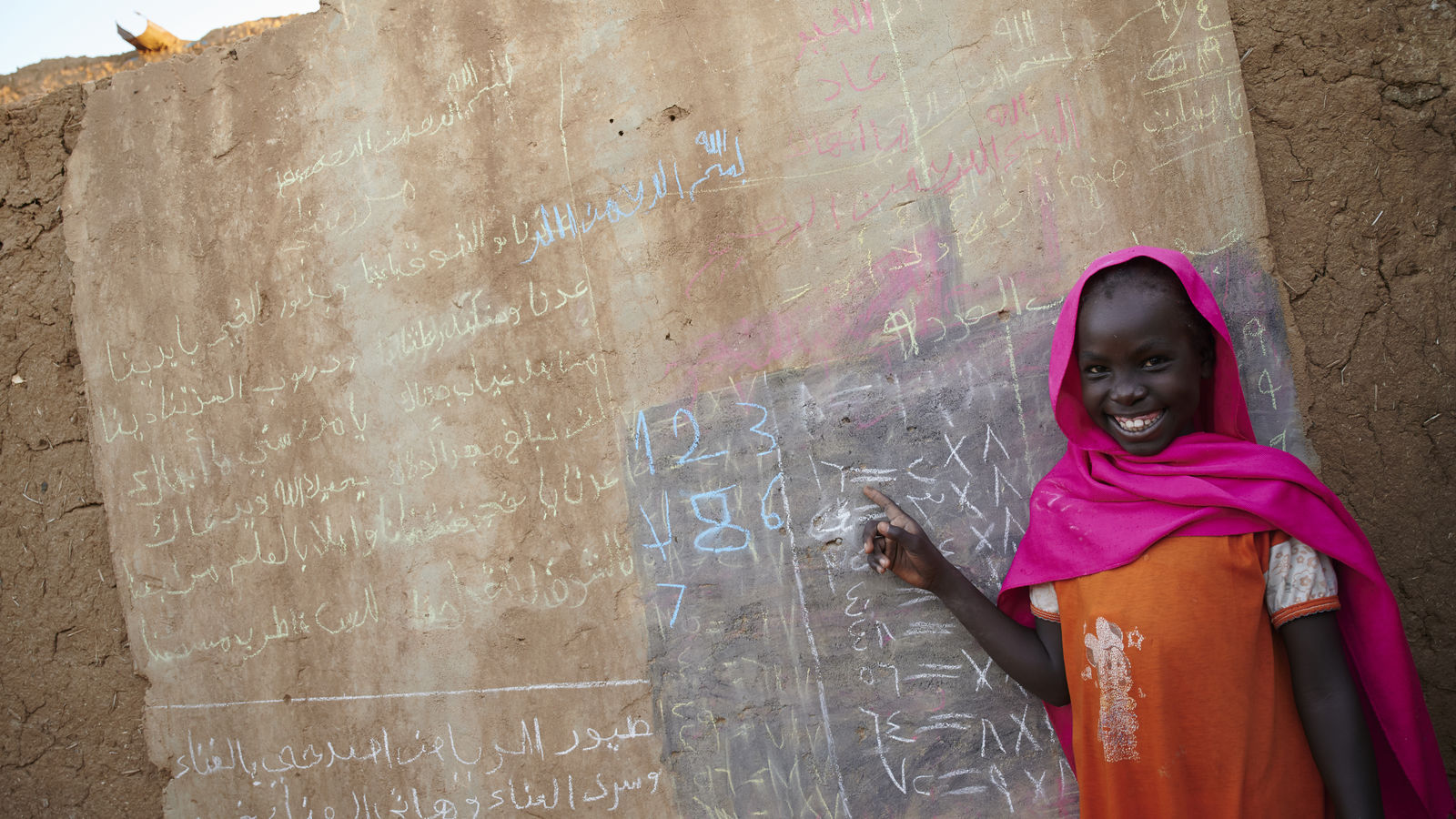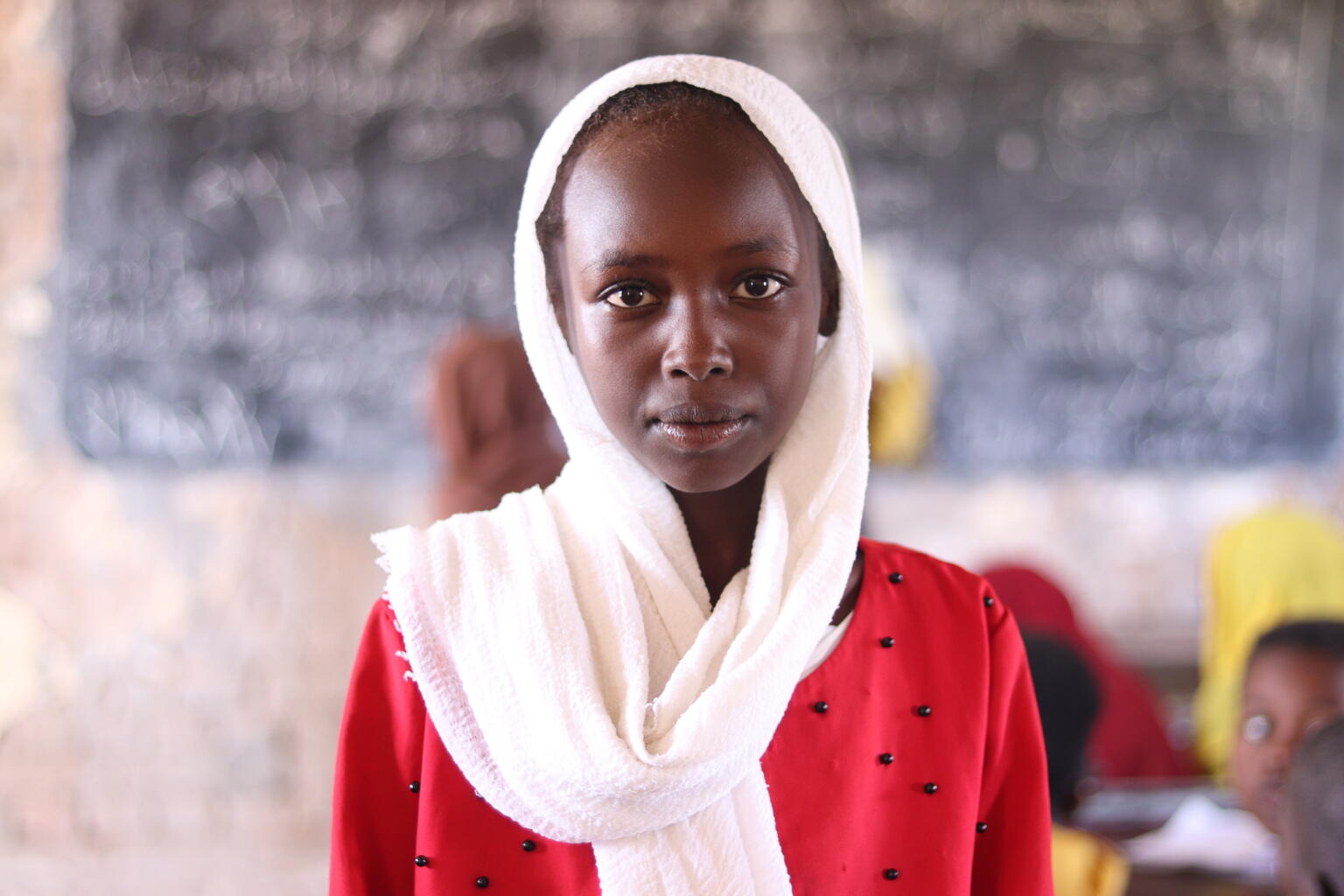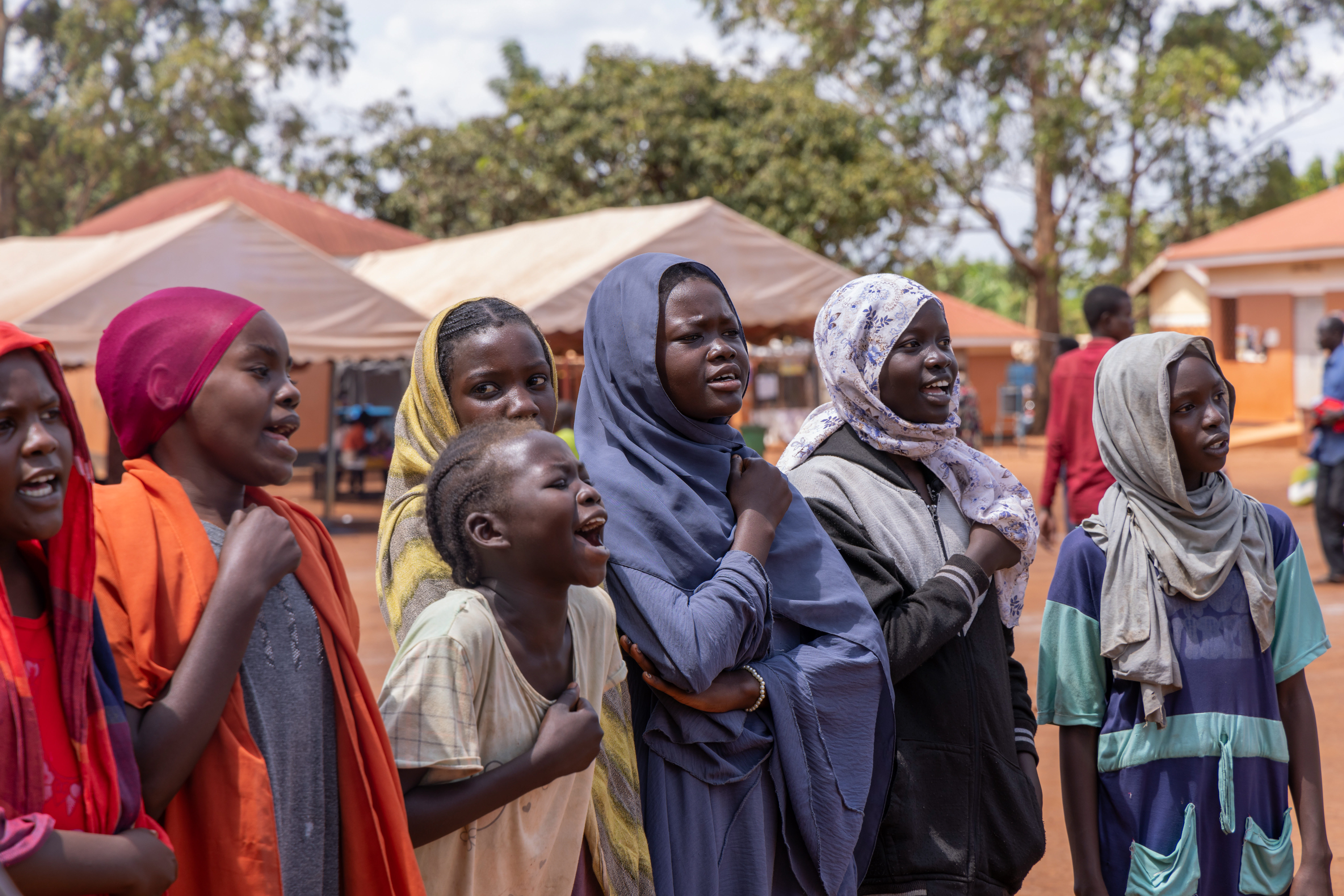ECW in Sudan
In Sudan, ongoing conflict and political instability have created widespread displacement, poverty and strained resources. Climate-induced disasters, along with the COVID-19 pandemic, have created additional challenges for vulnerable families. Many children are out of school and those fortunate enough to attend face limited resources, overcrowded classrooms and a poor quality of education. To address the crisis, Education Cannot Wait (ECW) supports partners to build inclusive learning environments; increase enrolment rates; and meet the physical and mental needs of children and adolescents. Results from the First Emergency Response launched in 2021 will be available in 2022. Activities of the Multi-Year Resilience Programme (MYRP) began in 2022 and results will be available after one year of implementation.
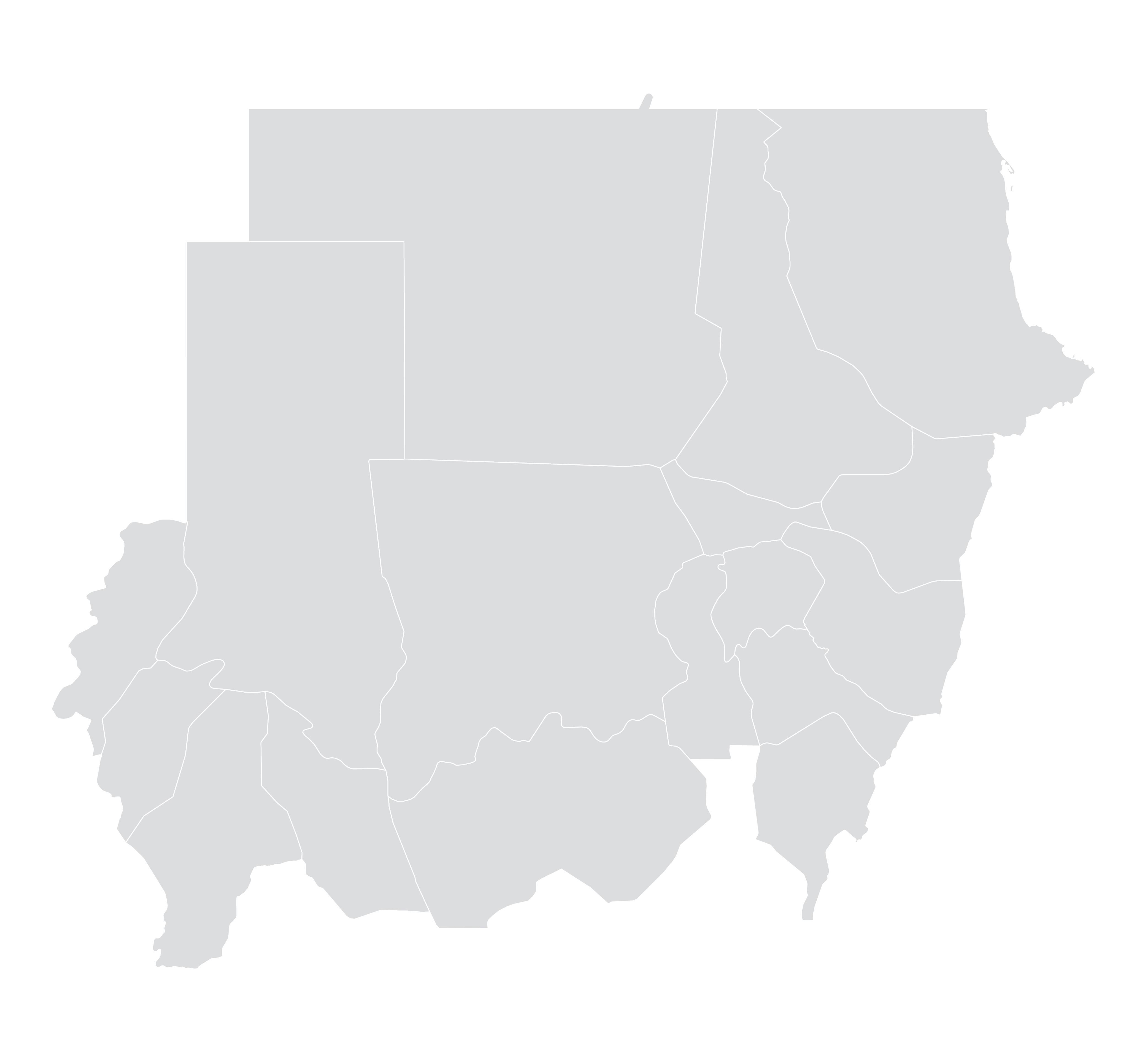
Investments
Financial Information
National Counterparts
The Federal Ministry of Education
Results
Additional Results
- Number of ECW-supported learning spaces/schools with access to drinking water, single-sex basic sanitation facilities, and/or basic hand-washing facilities: 100
Programme Info
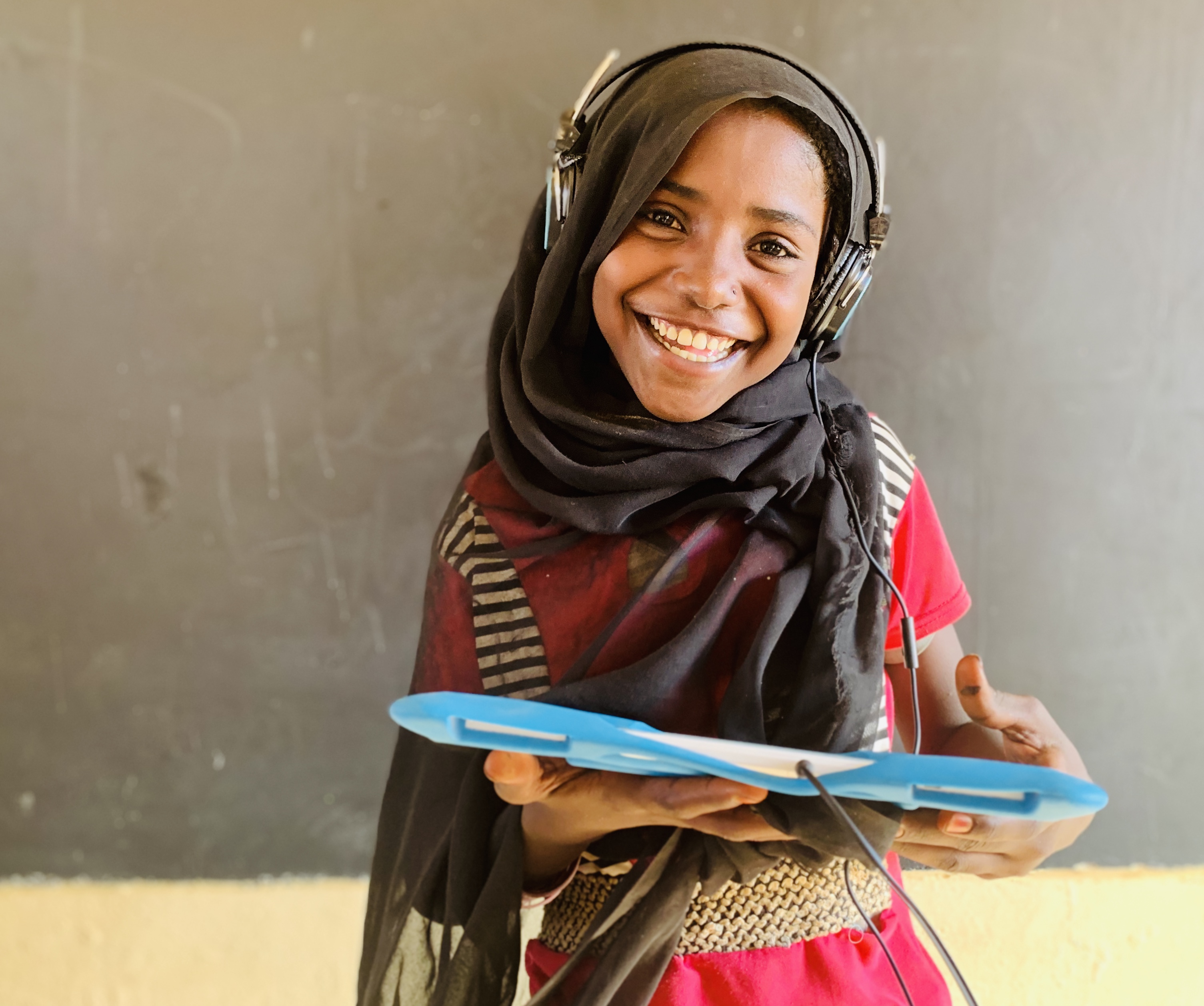
Climate-induced disasters, COVID-19 and dire economic conditions are exacerbating the humanitarian crisis. Unprecedented flooding and recurring extreme weather events in the country have worsened existing challenges and fuelled disease outbreaks. Food prices are also rising, and pandemic-driven lockdowns have crippled the private sector, leaving families in financial distress and unable to make ends meet.
With extremely limited resources, classrooms are overcrowded, materials are lacking, children with disabilities lack access to inclusive learning environments, and water, sanitation and hygiene (WASH) conditions are inadequate. Some students, particularly pastoralist children, need to work to support their families and school hours conflict with their working hours, leading to high drop-out rates. Displaced students face significant delays in their education, limited infrastructure for remote schooling and exposure to risks of child marriage, early pregnancy, exploitation, abuse and recruitment into armed groups.
ECW launched a First Emergency Response (FER) in 2021 to address immediate escalating needs. Additionally, ECW rolled out a MYRP in 2022 to address the holistic educational needs of the most vulnerable refugee, internally displaced and host community children and adolescents. Grantees create safe learning environments; improve enrolment rates; address mental health and psychosocial needs; support inclusivity in schools for marginalized children; and implement methods to support the reintegration of out-of-school students.
Programme Components
- Addressing mental health and psychosocial needs. Grantees provide improved mental health and psychosocial support (MHPSS) services to students and educators. Teachers receive training on child protection; referral pathways (for psychosocial support, health, protection, and other matters); child safeguarding; MHPSS; and effective teaching for children dealing with the aftermath of trauma and violence.
- Establishing safe learning environments. Supports construction of temporary learning spaces; the rehabilitation of existing classrooms; the provision of learning supplies; upgraded WASH facilities; improved lesson plans; and inclusivity training for educators across all learning levels.
- Improving enrolment rates. Grantees provide financial support for marginalized children and adolescents to reduce access barriers. Re-enrolment campaigns are launched to reach out-of-school students, along with training for educators to support their transition back to learning.
- Promoting inclusivity in schools. Provides dignity kits to girls for improved menstrual health management (MHM). Grantees train education personnel to increase awareness and communication of female health and protection-related issues, such as female genital mutilation, child marriage and gender-based violence. Funding also supports community engagement to promote school enrolment and attendance for children with disabilities.
- Supporting out-of-school students. Grantees provide internally displaced, refugee, returnee, nomadic and host community children with accelerated learning programmes to reintegrate them into formal learning environments. Content is individualized to meet a wide array of needs and catch them up to peers.
For more information on ECW's work in Sudan, please contact Country Lead Maarten Barends (mbarends@unicef.org) and Programme Manager Eddie Dutton (rdutton@unicef.org).

